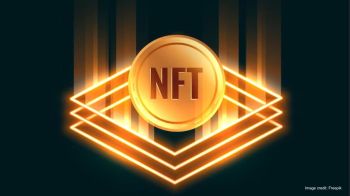Introduction
In recent years, Non-Fungible Tokens (NFTs) have revolutionized the digital landscape, offering unique opportunities for creators, collectors, and investors alike. NFTs have gained immense popularity due to their ability to represent ownership and authenticity of digital assets on the blockchain. In this article, we will explore the five best use cases for NFTs that are not only relevant today but also hold the potential to shape the future of various industries.
1. Digital Art:
One of the most prominent use cases for NFTs is the digital art market. Artists can tokenize their artwork as NFTs, ensuring scarcity, provenance, and authenticity. These tokens enable artists to sell their digital creations directly to collectors, eliminating the need for intermediaries. NFTs have opened new avenues for artists to monetize their work, while collectors can own exclusive digital assets with verifiable ownership records.
2. Collectibles:
NFTs have redefined the concept of collectibles, extending it to the digital realm. From virtual trading cards to virtual pets, NFT collectibles have gained significant traction. Collectors can own unique digital items with intrinsic value and trade them on various NFT marketplaces. This use case appeals to a wide range of audiences, including gamers, enthusiasts, and nostalgic individuals looking to own a piece of digital history.
3. Virtual Real Estate:
As virtual worlds and metaverses gain popularity, the concept of virtual real estate has emerged as a promising use case for NFTs. Individuals can purchase virtual land or property as NFTs, providing them with ownership rights and the ability to customize their virtual spaces. With the growing interest in virtual reality and social platforms, virtual real estate holds immense potential for commerce, entertainment, and community-building in the future.
4. Royalties and Intellectual Property:
NFTs can also revolutionize the management of royalties and intellectual property rights. By tokenizing creative works, artists can automatically receive a percentage of future sales whenever their NFTs are resold. This provides artists with a sustainable revenue stream and a direct connection to the secondary market. NFTs ensure transparent and traceable royalty distribution, benefiting creators and incentivizing the production of high-quality digital content.
5. Supply Chain and Authenticity Verification:
NFTs have the potential to enhance supply chain management and verify the authenticity of physical goods. By attaching NFTs to products, manufacturers can track their journey from production to the end consumer, ensuring transparency and preventing counterfeiting. This use case extends beyond luxury goods and collectibles, as it can be applied to pharmaceuticals, luxury fashion, and even organic produce, where trust and authenticity are crucial factors.
Conclusion
The five use cases mentioned above represent just a fraction of the immense potential NFTs hold for the future. From transforming the art market to revolutionizing the concept of ownership in the digital realm, NFTs continue to shape various industries.


No comments yet